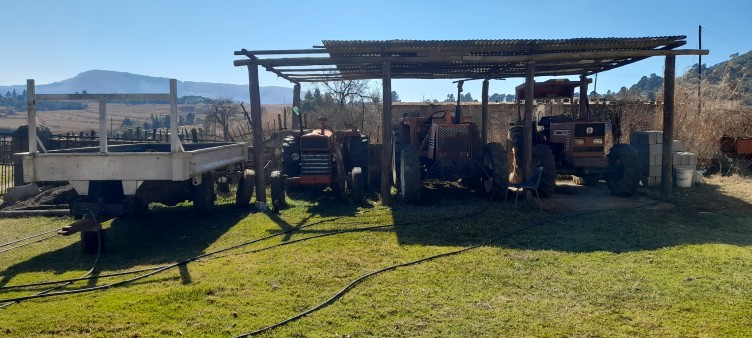Unlocking the Untapped Potential of Agriculture in Zambia: The Imperative of Mechanization for Smallholder Farmers
In the wake of the recent Farmers’ Day celebration in Zambia, the nation finds itself at a crossroads, poised to harness the latent power within its agricultural sector. A critical component of this untapped potential lies within the realm of smallholder agriculture, a cornerstone of rural life in Zambia. However, this vital sector grapples with issues of low productivity, stemming from inadequate mechanization and limited access to modern agricultural technologies. Amidst the backdrop of traditional tools and time-honored practices, the clarion call to embrace mechanization has gained momentum, with the potential to revolutionize both the fortunes of the farmers and the nation as a whole.
The Predicament of Smallholder Agriculture
Smallholder agriculture stands as a bedrock of Zambia’s rural communities, providing not only sustenance but also livelihoods for countless families. Nevertheless, the potential of this sector remains shackled by the absence of mechanization and the scarcity of suitable technologies. Many farmers persist in relying on age-old methods and rudimentary tools, leading to inefficiencies and labor-intensive processes.
The array of challenges stemming from this predicament is wide-ranging and severe. From diminished productivity to escalating labor costs, compromised quality, and the inefficiencies inherent in time-intensive labor, smallholder farmers grapple with multifaceted obstacles. However, amidst the bleak landscape, the prospect of mechanization emerges as a beacon of hope, even as the high costs associated with obtaining equipment continue to stand as a formidable barrier for most farmers.
A Pathway to Progress: The Role of Mechanization
The road to unlocking the potential of smallholder farmers necessitates introducing them to the transformative capabilities of modern technology, with mechanization and irrigation technologies at the forefront. Mechanization offers a strategic solution to an array of challenges confronting smallholder farmers. By addressing labor-related costs, enhancing production quality and consistency, and facilitating the scaling up of operations, mechanization holds the key to elevating overall productivity and income for these farmers.
However, the quest for mechanization requires innovation and a collaborative approach tailored to Zambia’s unique agricultural landscape. Such innovation is vital in devising solutions that cater to the specific needs of smallholder farmers in the nation.
Reducing the Cost of Mechanization: Engineering Solutions for Farmers
The steep initial costs of agricultural machinery remain a significant deterrent for smallholder farmers seeking to embrace mechanization. To overcome this obstacle, the engineering community is called upon to spearhead the creation of cost-effective technologies tailored to the needs of Zambian farmers. Through the application of modern engineering principles, the development of efficient yet affordable machinery becomes a realizable goal, bridging the gap between aspiration and reality for farmers across the country.
Alternative Mechanization Models: Equipment for Hire
An innovative avenue to explore lies in promoting alternative mechanization models, such as equipment rental services. By establishing platforms for machinery rental, the financial burden on individual farmers can be significantly alleviated, if not eliminated entirely. This approach not only dismantles the cost barrier but also invigorates local economies by fostering opportunities for businesses specializing in machinery rental and maintenance.
Access to Finance: Tailored Financial Solutions
The realization of mechanization’s potential hinges upon the involvement of financial service providers (FSPs). In this regard, innovation in financial products and services becomes paramount. Customized loan options, flexible repayment plans, and collaborative partnerships between FSPs and agricultural organizations can cultivate an environment conducive to farmers investing in machinery without succumbing to financial strain.
Conclusion: Paving the Way for Prosperity
The boundless potential of Zambia’s agricultural landscape awaits activation, contingent upon the empowerment of smallholder farmers through technological advancements. The twin forces of mechanization and irrigation technology possess the potential to metamorphose subsistence farming into a thriving, sustainable enterprise. By surmounting the cost barrier through engineering innovation, fostering alternative mechanization models, and tailoring financial solutions, Zambia can pave the path toward a more prosperous agricultural sector.
As the horizon beckons us beyond the trials of the present, let us collectively rally behind the vision of equipping smallholder farmers with the tools for modernization. This pursuit unlocks the dormant potential within Zambia’s fields, nurturing a future that radiates abundance and prosperity for all.



